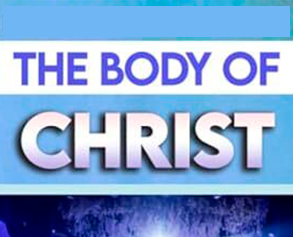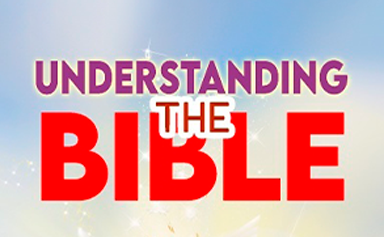
- Instructor: Admin
- Lectures: 5
- Quizzes: 5
- Students: 2
Introduction
This course explores the doctrine of salvation (Soteriology) through the lens of biblical theology. It traces the theme of salvation from Genesis through Revelation, highlighting key theological concepts, biblical narratives, and God’s redemptive plan for humanity. The course will engage with Scripture’s unfolding narrative of salvation history, emphasizing the significance of Christ’s work and its application to believers. This course will take students through key aspects of salvation as revealed in Scripture, examining historical and theological contexts, and integrating Biblical themes to form a cohesive understanding of salvation.
SOTERIOLOGY_THE_DOCTRINE_OF_SALVATION_COURSE_AND_QUIZ
Course Objectives:
By the end of the course, students will:
Understand the biblical concept of salvation as it unfolds in the narrative of Scripture.
Gain a comprehensive grasp of key soteriological doctrines (justification, sanctification, glorification, etc.).
Appreciate the biblical foundations of salvation and the relationship between Old and New Testament teachings.
Be able to articulate how salvation is applied to individuals and the Church, both historically and in the present.
Course Structure:
Introduction to Soteriology
Defining Soteriology
– Definition and importance of Soteriology in Christian theology.
– Overview of key themes: redemption, grace, atonement, forgiveness, eternal life.
– The relationship of Soteriology with other theological disciplines (e.g., Christology, Ecclesiology, Eschatology).
– Explanation of biblical theology as a discipline.
– How Soteriology fits within the grand narrative of Scripture (Creation, Fall, Redemption, and Restoration).
– A brief survey of God’s covenantal promises and salvation history.
Salvation in the Old Testament
Creation and the Need for Salvation
– The Fall of humanity (Genesis 3) and the introduction of sin.
– God’s promise of redemption through the seed of the woman (Genesis 3:15).
– Early glimpses of salvation (e.g., Noah and the Flood, Abraham and the Covenant).
The Exodus: A Paradigm of Salvation
– God’s deliverance of Israel from Egypt (Exodus 12-14).
– The theological implications of the Passover and its connection to salvation.
– The role of the Law (Torah) in salvation history (Exodus 19-24, Leviticus 16).
Salvation in the Psalms and Prophets
– The theme of deliverance in the Psalms (e.g., Psalm 23, Psalm 51, Psalm 103).
– The prophetic hope for salvation in Isaiah, Ezekiel, and Jeremiah.
– Key prophecies about the coming Messiah (e.g., Isaiah 53, Jeremiah 31:31-34).
Salvation in the Life and Ministry of Jesus Christ
The Incarnation and the Beginning of Salvation
– The role of Jesus as the fulfillment of Old Testament promises.
– The importance of the Incarnation in the soteriological narrative (John 1:14, Philippians 2:5-11).
– Jesus’ mission as the Savior (Luke 19:10, Matthew 1:21).
The Cross and Atonement
– Theological significance of the crucifixion of Christ.
– Substitutionary atonement, penal substitution, and satisfaction theories.
– The Lamb of God: Jesus as the fulfillment of Old Testament sacrifices.
– Key passages: Isaiah 53, Mark 10:45, Romans 3:21-26, 2 Corinthians 5:21.
The Resurrection and the Promise of New Life
– The resurrection as the vindication of Jesus’ work and the foundation of Christian hope.
– Christ’s resurrection as the “first fruits” of the resurrection to come (1 Corinthians 15).
– The resurrection as the key to the believer’s salvation and eternal life.
The Application of Salvation
Justification by Faith
– The biblical doctrine of justification (Romans 3:28, Romans 5:1).
– The imputation of Christ’s righteousness to believers.
– Faith and works in the context of salvation (James 2, Ephesians 2:8-9).
Sanctification: The Process of Being Made Holy
– Definition and importance of sanctification (1 Thessalonians 4:3, Romans 6:19-22).
– The role of the Holy Spirit in sanctification.
– The relationship between justification and sanctification.
Glorification and the Fulfillment of Salvation
– The ultimate goal of salvation: glorification (Romans 8:30, Philippians 3:21).
– The restoration of the believer into the image of Christ.
– The new heavens and the new earth as the final fulfillment of God’s redemptive plan (Revelation 21-22).
The Role of the Holy Spirit in Salvation
Regeneration and New Birth
– The necessity of regeneration (John 3:3-8, Titus 3:5).
– The role of the Holy Spirit in the new birth.
– The transformation of the heart and mind through the Spirit (Ezekiel 36:26-27).
Assurance of Salvation
– The witness of the Holy Spirit in the believer’s life (Romans 8:16, 1 John 5:13).
– The security of the believer’s salvation (John 10:28-30, Ephesians 1:13-14).
The Spirit’s Empowerment for Christian Living
– The Spirit’s role in empowering believers to live out their salvation (Galatians 5:16-25).
– The fruit of the Spirit as evidence of salvation (Galatians 5:22-23).
– The ongoing work of sanctification through the Spirit.
Salvation and the Church
The Church as the Community of the Saved
– The biblical understanding of the Church as the Body of Christ (Ephesians 1:22-23, 1 Corinthians 12:12-27).
– The Church as the instrument of salvation through the proclamation of the gospel.
– Baptism and the Lord’s Supper as signs and seals of salvation.
The Global Mission of Salvation
– The Great Commission and the Church’s role in spreading the gospel (Matthew 28:18-20).
– The inclusivity of the gospel: salvation for all nations (Acts 1:8, Revelation 7:9).
The Future Hope: Eschatology and the Fulfillment of Salvation
The Second Coming of Christ
– The return of Christ as the culmination of salvation history (Matthew 24:30, Acts 1:11).
– The final judgment and the separation of the righteous and the wicked (Matthew 25:31-46).
The New Creation and Eternal Life
– The ultimate hope for believers: the new heavens and new earth (Revelation 21-22).
– The restoration of all things and the final victory over sin and death (1 Corinthians 15:24-28).
Key Issues and Debates in Soteriology
Election and Predestination
– Overview of the biblical doctrine of election (Ephesians 1:4-5, Romans 8:29-30).
– Different views of predestination: Calvinism, Arminianism, and other perspectives.
Universalism vs. Particular Redemption
– The debate over the extent of Christ’s atonement.
– Biblical evidence for and against universal salvation (Matthew 7:13-14, 1 Timothy 2:4).
Free Will and Divine Sovereignty
– The relationship between human free will and God’s sovereignty in salvation.
– Key texts: John 6:44, Philippians 2:12-13, Romans 9.
Assessment & Evaluation:
– Quizzes: Short quizzes at the end of each unit to assess comprehension.
– Essay: A 1500-2000 word essay on a key theme or debate in Soteriology.
– Final Exam: A comprehensive exam covering all units of the course.
Reading Materials:
Primary Texts: The Holy Bible (especially Genesis, Psalms, Isaiah, Gospels, Romans, 1 Corinthians, Revelation).
Recommended Books:
“THE RESCUE MISSION OF JESUS” by DR. ABRAHAM PETERS
“Systematic Theology” by Wayne Grudem.
“Salvation: A History of the Christian Doctrine” by Michael S. Horton.
“The Cross of Christ” by John Stott.
Conclusion:
This course on Soteriology seeks to provide students with a robust biblical understanding of salvation. By tracing the theme of salvation from Genesis to Revelation, students will see the cohesive narrative of God’s redemptive work in Christ. Understanding this theme not only deepens our faith but equips us to live out the implications of salvation in our own lives and in the world.
Curriculum
- 1 Section
- 5 Lessons
- Lifetime
- Modules10
- 1.1Election and Calling
- 1.2Election and Calling – Quiz5 Questions
- 1.3Repentance and Salvation
- 1.4Repentance and Salvation – Quiz5 Questions
- 1.5The Foundation of Salvation: The Necessity of Redemption
- 1.6The Foundation of Salvation: The Necessity of Redemption – Quiz5 Questions
- 1.7The Results of Salvation
- 1.8The Results of Salvation – Quiz5 Questions
- 1.9The Role of Faith in Salvation
- 1.10The Role of Faith in Salvation – Quiz5 Questions





